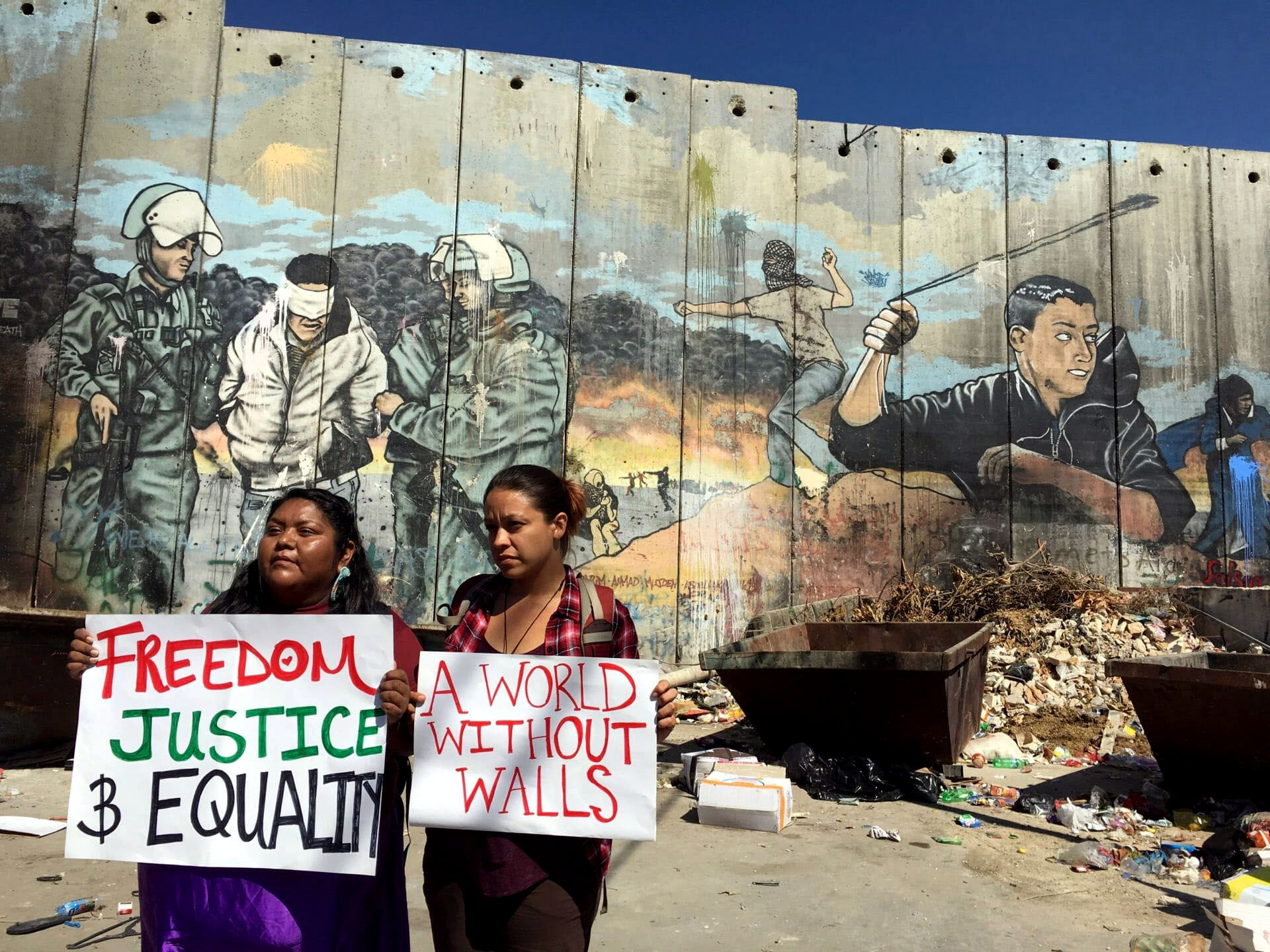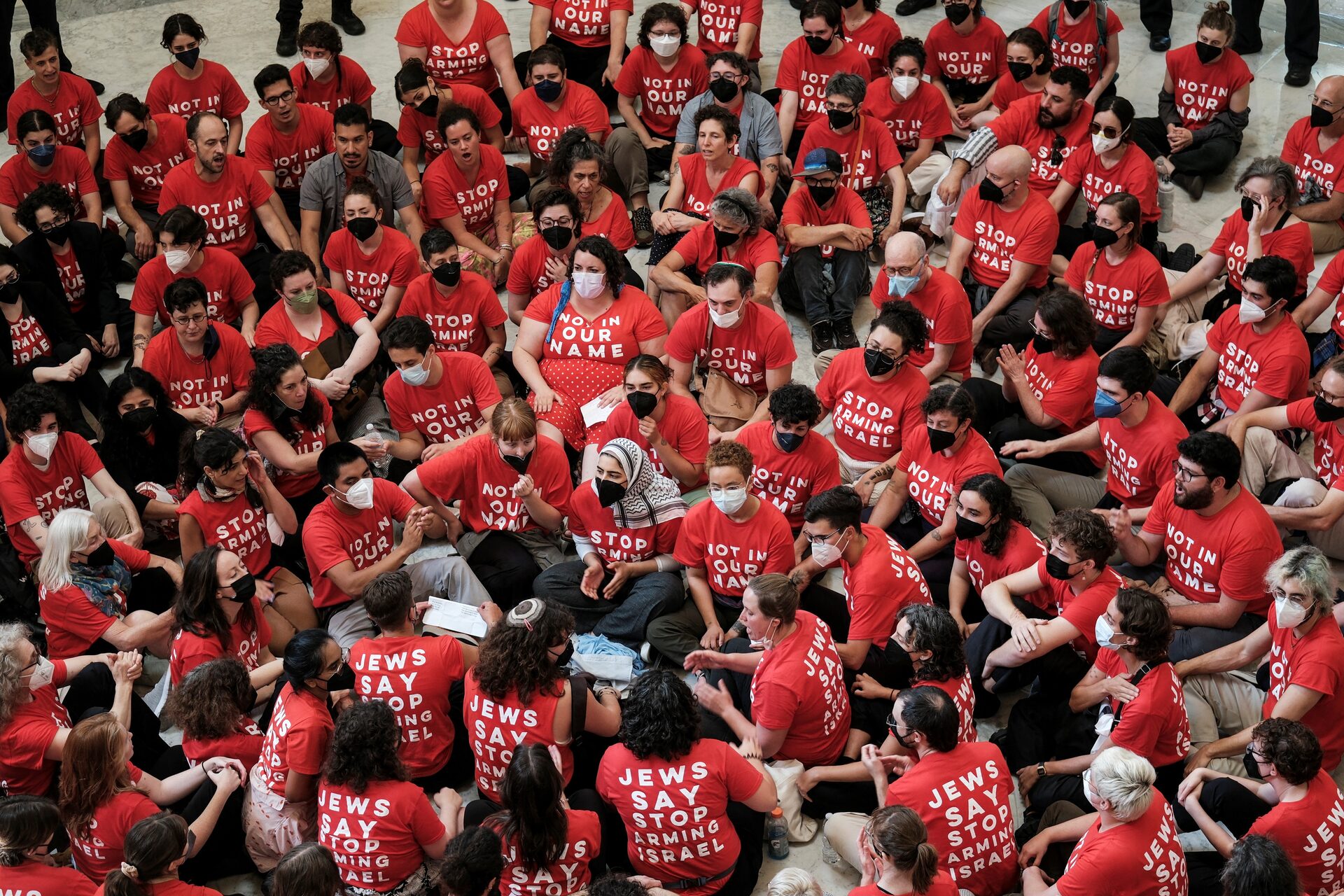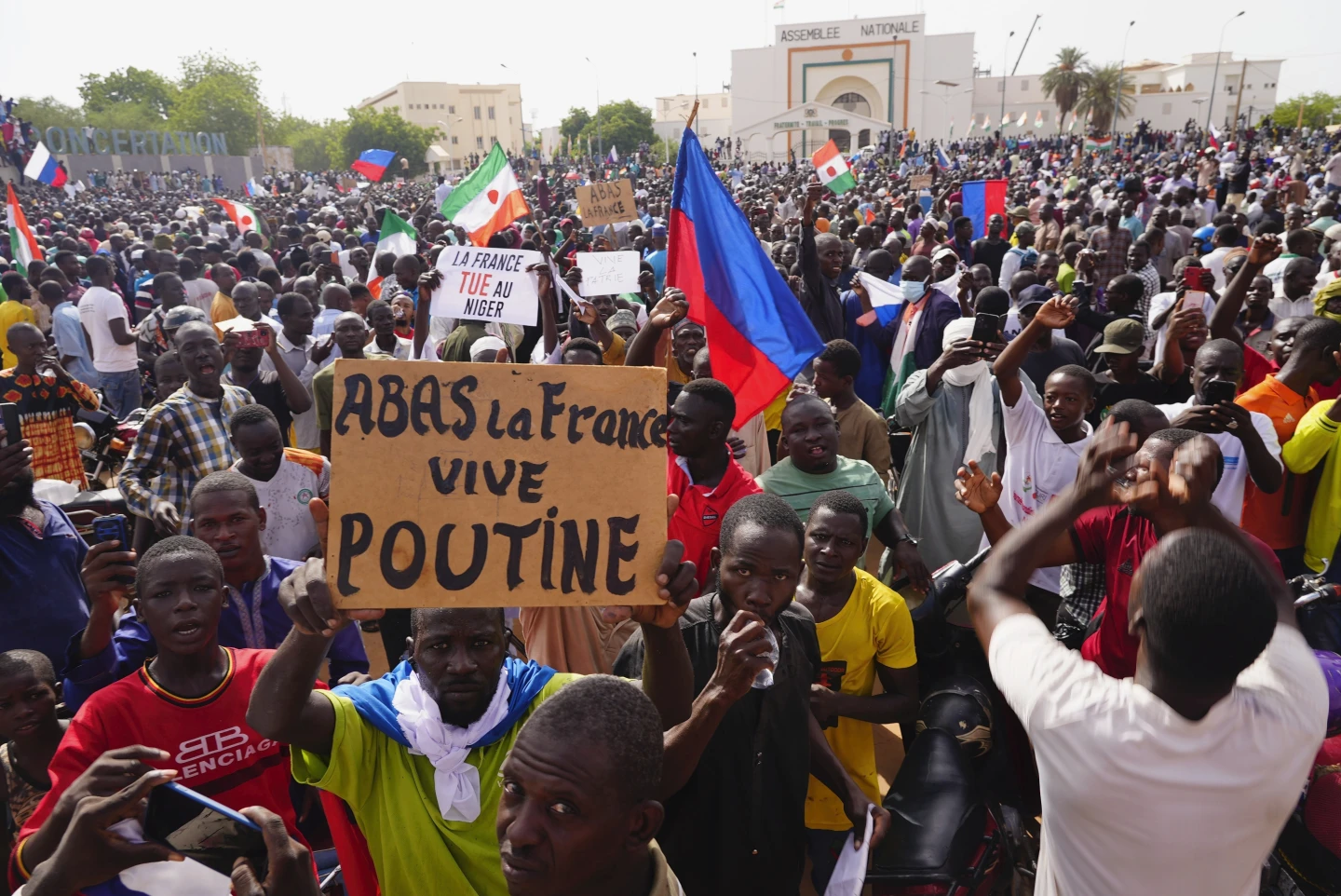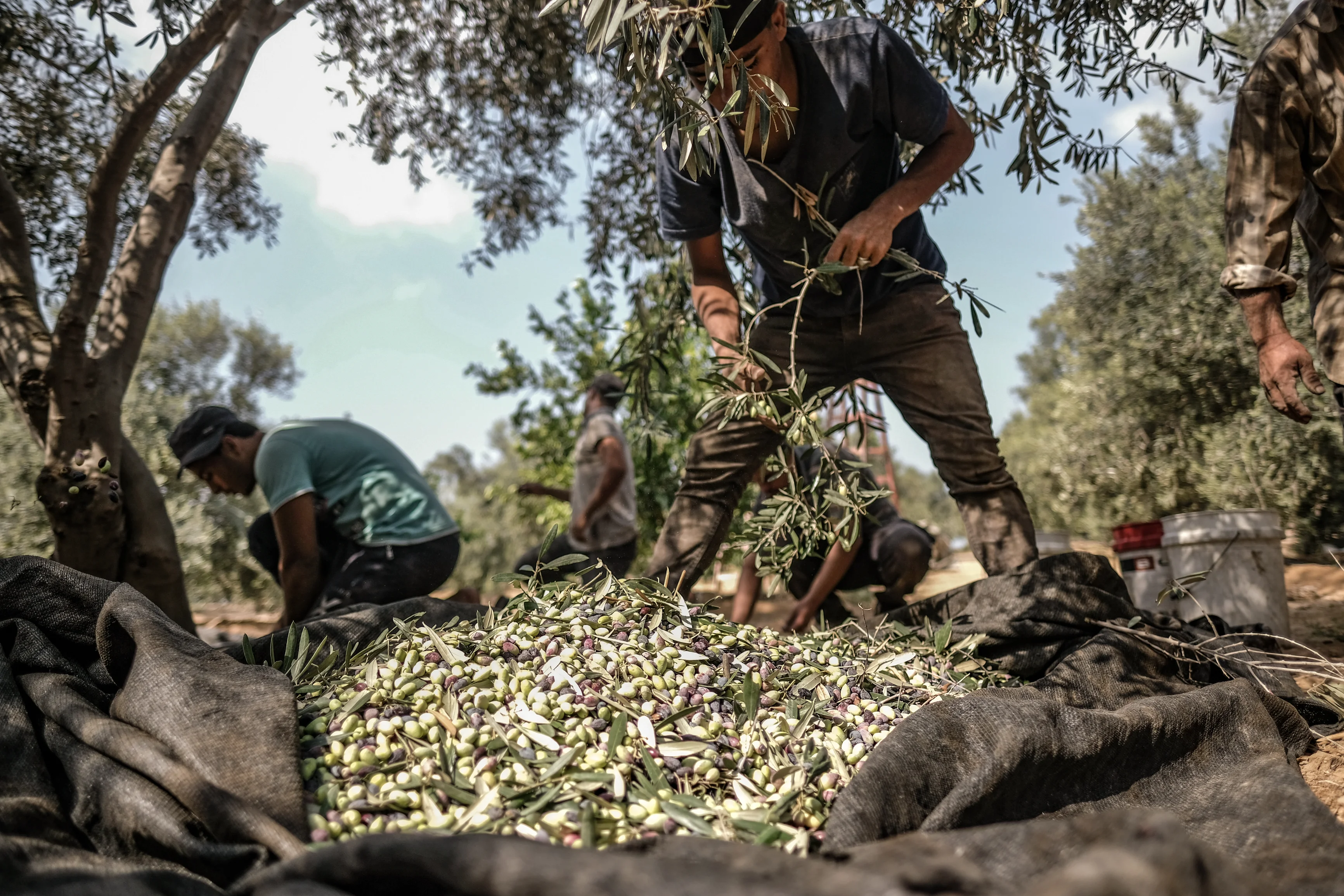All These Walls
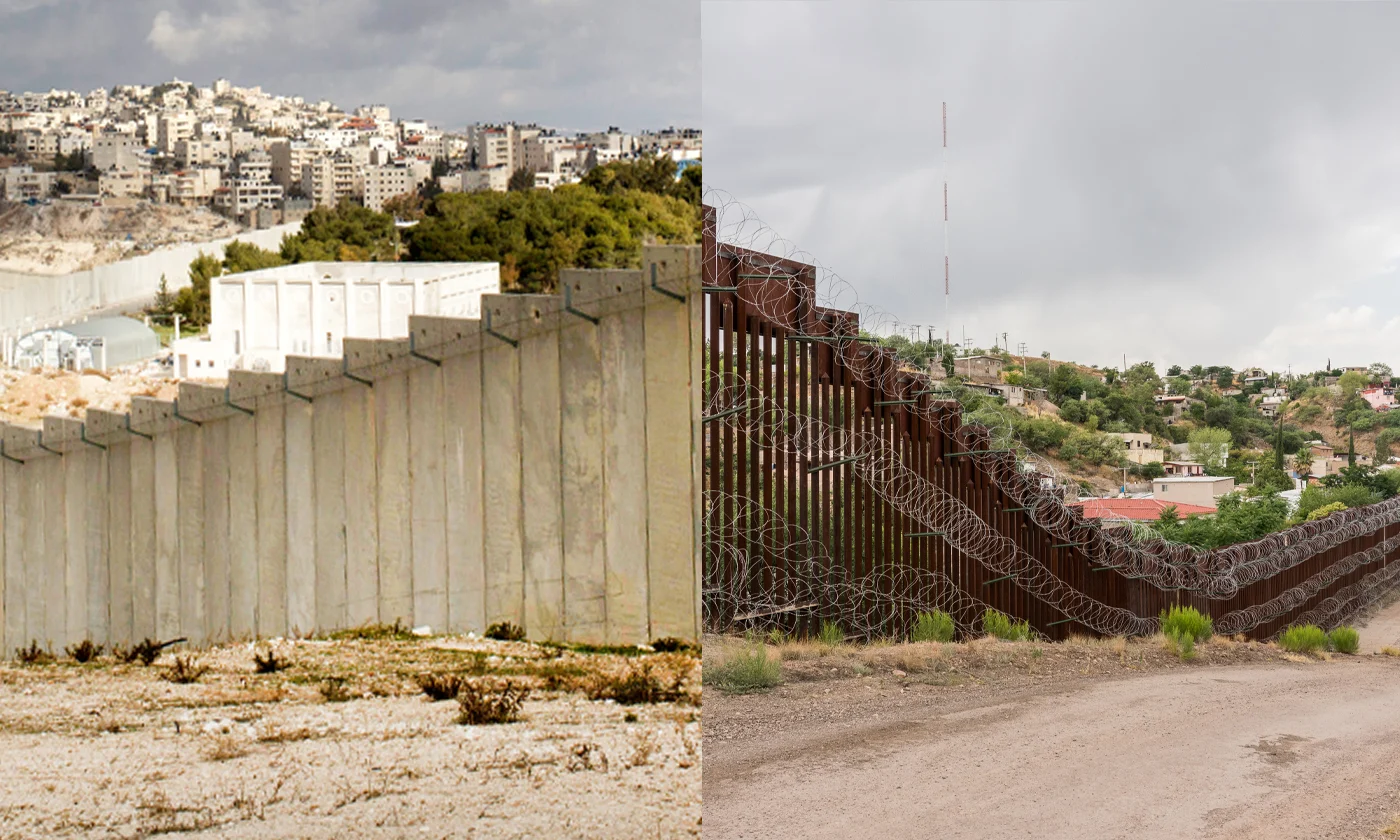
In the first weeks of the new administration, Trump has revoked the temporary protected status of over 350,000 Venezuelan immigrants, attempted to end birthright citizenship, and sent ICE into elementary schools. This blatant nativism may strike some as a part of the American right’s resurgence; in actuality, Trump’s anticipated policies are simply an overt continuation of political and technological cooperation between the U.S. and Israel, highlighting the ways in which border regimes criminalize and exploit Latine migrants and Palestinian refugees.
Whether through restrictive interventionist policy, military presence, and the destruction of native ecologies in Latin America, or through the mass unemployment and economic collapse engendered by Israeli apartheid, Israel and the U.S. create the conditions for displacement, generating a disposable workforce subject to the exploitative whims of bigoted employers, corporations, and governments. It is precisely this workforce, mainly in the agriculture and construction industries, that has built up the U.S. and Israel to where they are today, extracting their ill-gotten gains at the expense of the Global South.
While crossing the border is neither the beginning of many migrants’ stories — many people, especially from Venezuela and Haiti, first cross the dangerous Darién Gap straddling Panama and Colombia — nor the end of them, it’s an experience marked by a cruel irony. The borders demarcating Israel from Palestine and the U.S. from Mexico restrict entry to those who have a legitimate claim to that land, stolen from them through the violence of forced displacement. For Palestinian or Indigenous Latine people, work permits, quotas, barriers, walls, and checkpoints enforce these communities’ submission to colonial powers.
With this in mind, it’s no surprise that the same companies who construct humiliating checkpoints in the West Bank have moved their operations to the U.S. Trump may talk all he wants about constructing a physical border wall along the Rio Grande, but he and his predecessors don’t always need cement and bricks to achieve their ethno-nationalist goals, especially not when Israeli companies come to their aid. The same “border security” technology employed by the American government is developed in part by Elbit Systems, one of the Israeli government’s most notorious contractors; its American subsidiary was chosen by the Department of Homeland Security for over ten years of experience “securing the world’s most challenging borders.” Elbit was given the green light in 2014 to construct 52 border surveillance towers in Arizona. Those towers were constructed on the federally recognized land of the Tohono O’odham people, an Indigenous nation with its own history of abuse at the hands of border patrols. Just last year, under the Biden administration, the DHS gave Elbit another contract to develop parts of a physical border wall.
The idea of “opportunity” — the purported reason that migrant workers endure such horrible conditions — remains a rhetorical veil that obscures the violence of border regimes. One of the consequences of the colonial extraction of wealth is that jobs in the U.S. and Israel pay more than they ever would in countries in Latin America and Palestine. It goes without saying that this doesn’t justify the indignities Palestinian and Latine migrant workers face, including dangerous working conditions, low wages, and the constant threat of deportation. People working in construction are rarely afforded the measures needed in order to do the job safely; many of the agricultural workers in the Jordan Valley and California are children.
Conservatives in the U.S. lament the death of the “American Dream” and question why migrants keep crossing the border in spite of it. What these people fail to realize is migrants are more than the naive, hopeful caricatures portrayed in mainstream media. Many are aware of the injustices they face and that they don’t hold the cards in this game — colonial powers do. The same goes in Palestine. As Ibrahim Slaieh, a Gazan who obtained a work permit to enter Israel, told the Associated Press in 2022: “I work lengthy hours and get paid overtime, that’s why I do it. In Gaza, we would work these hours for only 30 shekels (about $10) a day.” Even so, permits like Slaieh’s only last for six months before they have to be renewed, a tool of labor control that keeps workers in financial precarity.
As immigration advocates and the U.S. left steel ourselves for four more years of Trump, we must be clear-eyed about the nature of the systems we combat. Fighting immigration injustice necessitates the dismantling of colonial and capitalist systems, whether in the U.S. or in Israel. In this sense, the struggle for a free Palestine is in turn the struggle of migrant workers in the U.S. as well.
